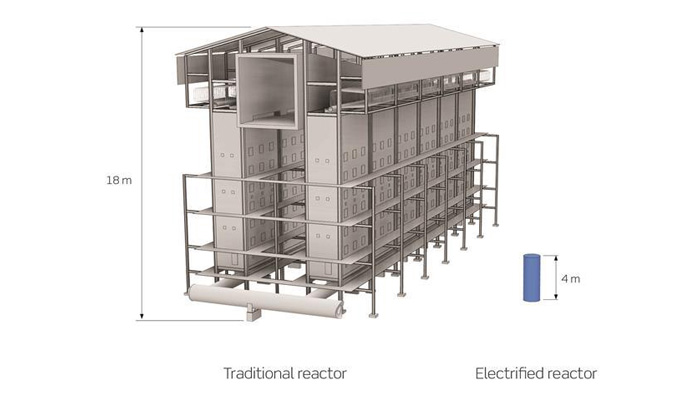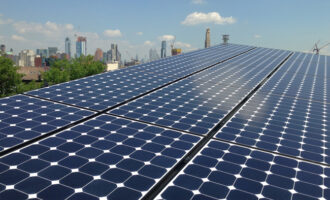
Topsoe to build demo plant to produce cost-competitive CO2-neutral methanol
Haldor Topsoe will build a 10 kilogram per hour methanol plant to demonstrate the company’s electrified and extremely compact eSMR Methanol™ technology for cost-competitive production of sustainable methanol from biogas.
Today, biogas in grid quality is much costlier to produce than the natural gas it replaces. If biogas producers can produce sustainable methanol instead, they will be able to increase their production value significantly and compete on commercial terms with fossil-based products. Methanol is used as a clean fuel or as an important intermediary in the production of many chemicals and polymers (plastics).
This groundbreaking technology produces synthesis gas (syngas), an essential building block in the production of polymers and chemicals. It may reduce the traditional steam reforming unit found in most chemical plants from the size of a six-story building, 30 meters in length, to just a few cubic meters. The extremely compact technology replaces the natural gas-fired heating of traditional steam reformers with direct electric heating of the catalytic process.
The eSMR Methanol™ technology exploits the full carbon potential of biogas by utilizing the 40% CO2content which is routinely separated and vented today. The technology heats the process using green electricity from wind turbines or solar panels instead of natural gas.
The eSMR Methanol™ process is CO2-neutral when based on biogas as feedstock and green electricity for heating. It even utilizes the CO2 that makes up about 40% of biogas and typically is costly to separate and vent in the production of grid quality biogas.
The demonstration plant, which will be located at Aarhus University’s research facility in Foulum, Denmark, is expected to demonstrate that sustainable methanol production from biogas can compete with traditional methanol production based on fossil fuels. Scheduled to be fully operational in the beginning of 2022, the plant will receive funding from the EUDP – Energy Technology Development and Demonstration Program.









